From October 12 to 15, 2018, the Int’l Symposium on Studies of Medieval and Renaissance European Literature was held in Room 201, Building East 5, Zijingang Campus by the Center for Medieval and Renaissance Studies of School (CMRS) of School of International Studies, Zhejiang University. As the second academic symposium held by the CMRS since its foundation and the international academic conference officially approved by the Ministry of Education, it attracted more than 40 scholars from universities worldwide, including Yale University, Northern Illinois University, National Chung Cheng University in Taiwan, Soochow University, University of Padua in Italy, Peking University, Beijing Foreign Studies University, Shanghai International Studies University, Fudan University, Nanjing University, Sichuan University, Tongji University, Zhongshan University, Zhejiang University, etc.
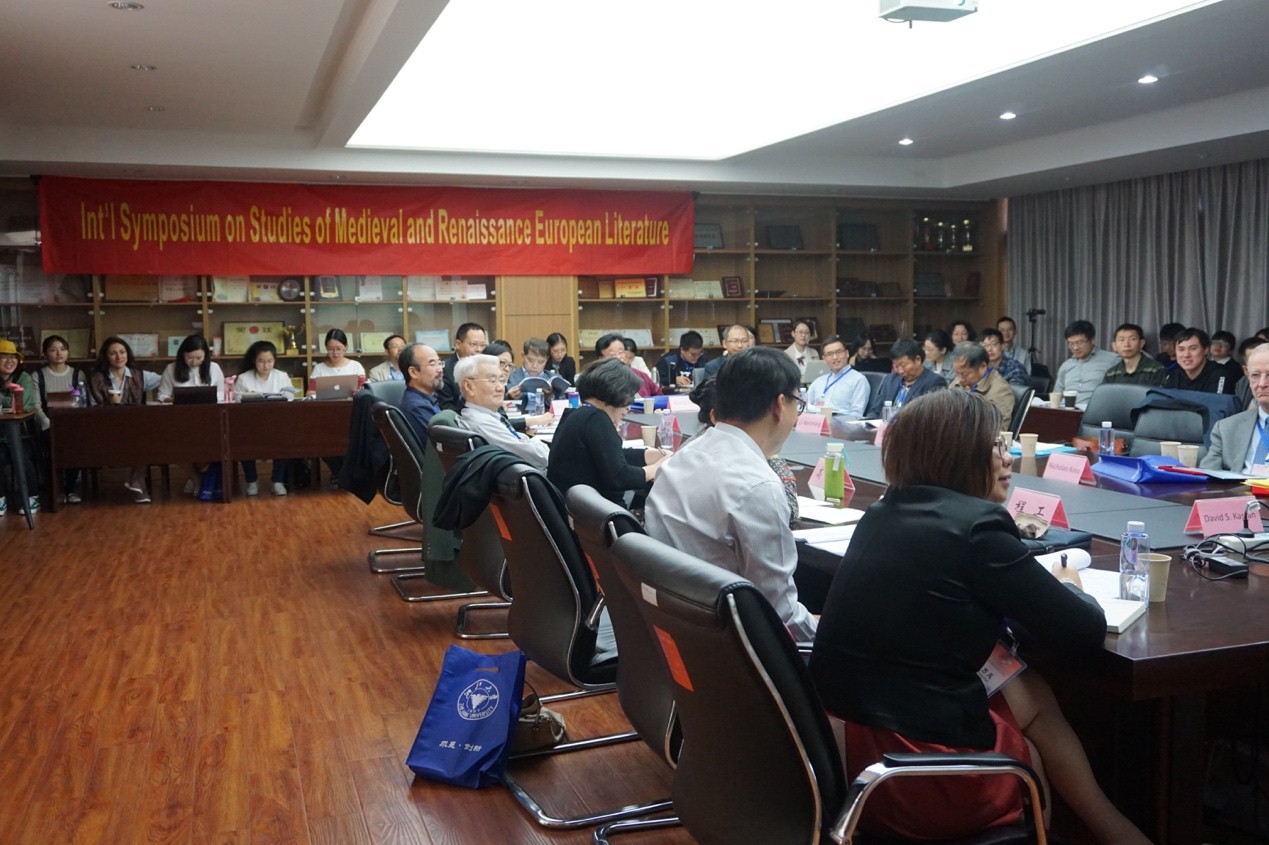
The Scene of the Symposium
The opening ceremony, hosted by Prof. Fang Fan, Vice Dean of SIS, began with a speech delivered by Prof. Cheng Gong, Dean of SIS. Prof. Cheng first extended a warm welcome to all scholars from home and abroad, and clarified the significance and unique role of the CMRS. He also pointed out that with richer experience and a wider participation based on last year’s symposium, this symposium would definitely yield more fruitful achievements. Finally, he wished the symposium a complete success.
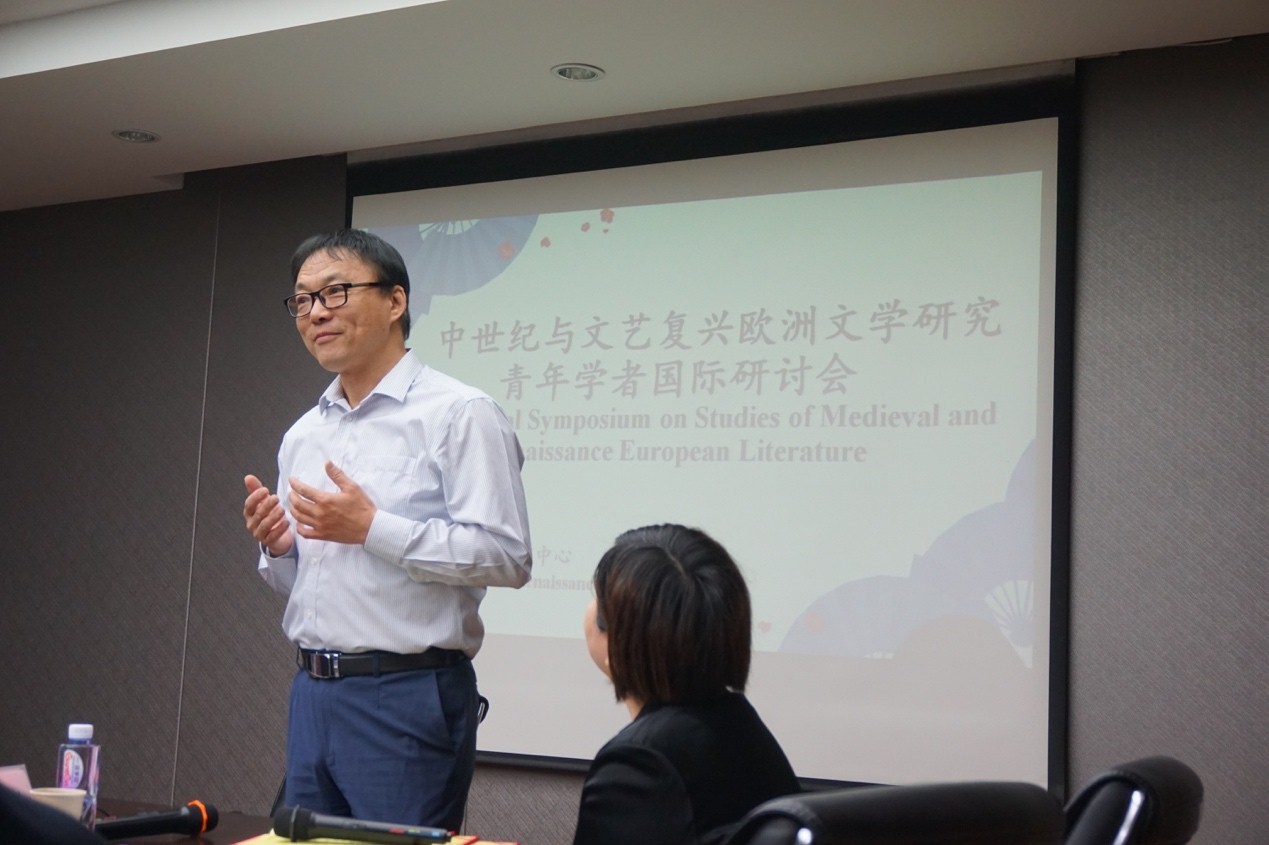
Prof. Cheng Gong delivering a speech
After the speech, Prof. Cheng Gong issued awarding certificates to some of the CMRS international consultants, namely, Prof. Kastan, Chu Kochen Distinguished Scholar from Yale University, Prof. Koss from Peking University, and Prof. Baker from Northern Illinois University.
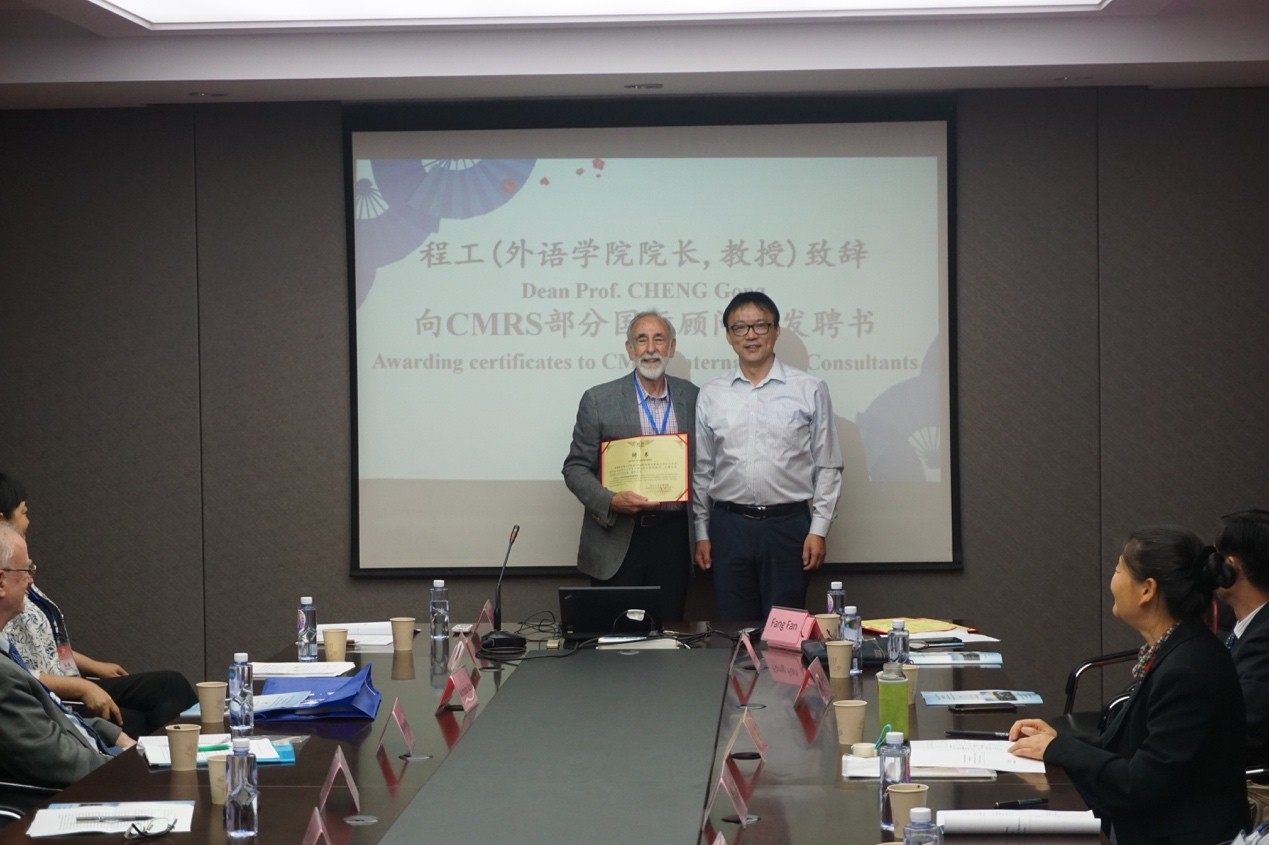
Prof. Kasten awarded international consultant of the CMRS
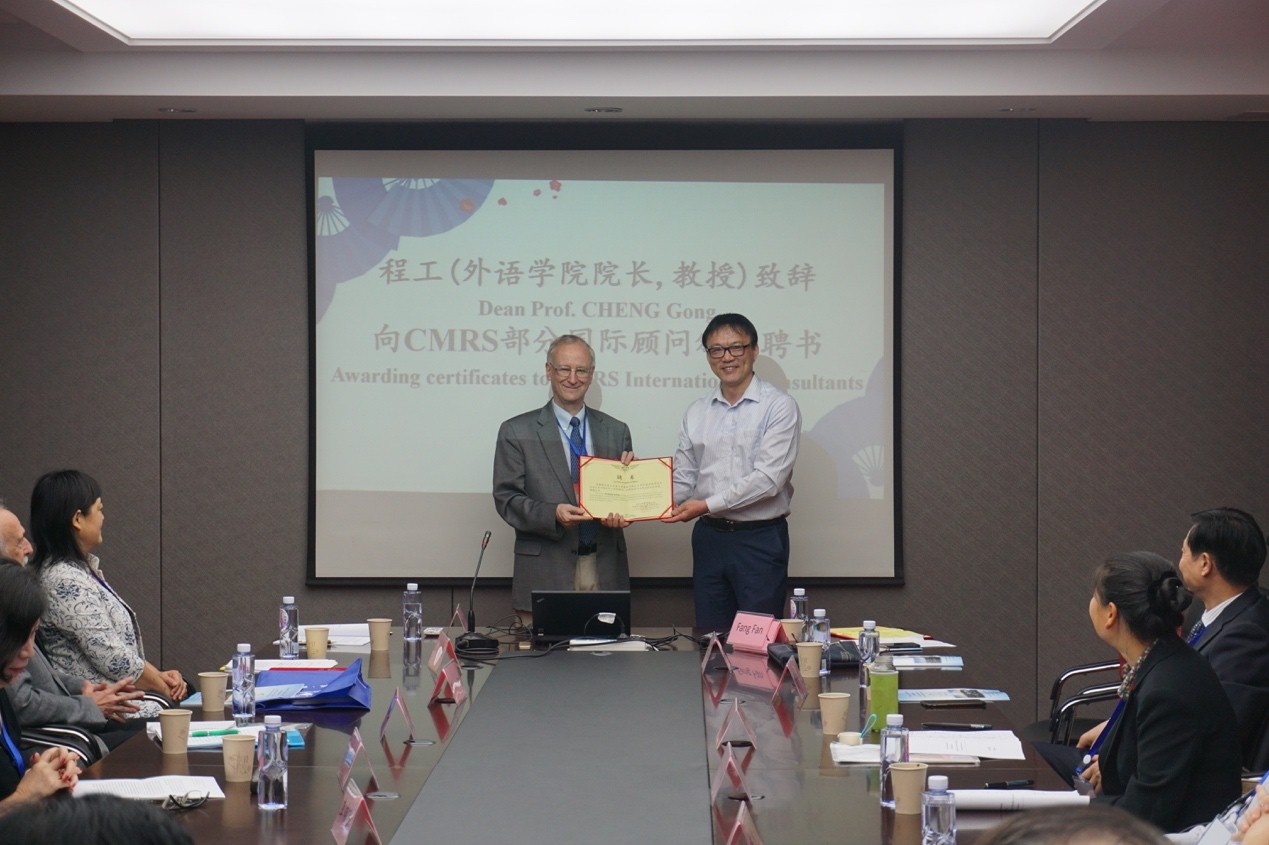
Prof. Koss awarded international consultant of the CMRS
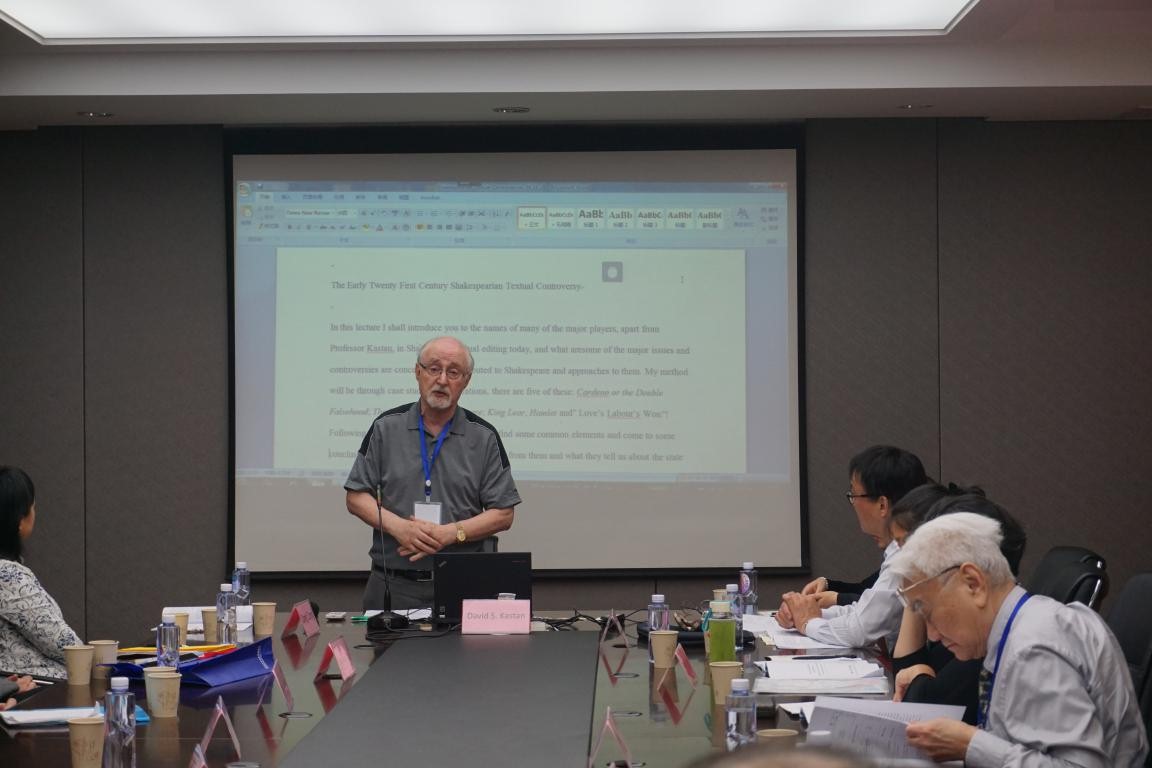
Prof. Baker delivering a keynote speech
After the opening ceremony, the international consultants gave keynote speeches with a high academic level. Prof. Kastan, a world-renowned scholar on Shakespeare, starting from the phrase “based on”, focused on the source and originality of Shakespeare’s works to demonstrate its uniqueness. He pointed out that Shakespeare had a talent of turning stone into gold. In other words, he was good at transforming the existing materials into masterpieces in a creative way. Prof. Baker elucidated the disputes on textual content and authorship of Shakespeare’s works at the beginning of the twenty-first century, and introduced the current research on Shakespeare’s texts with several case studies. Prof. Koss, based on the materials about China published by the Society of Jesus in the UK in the seventeenth century, enabled the audience to have a deeper understanding of barely-known history of that period.
Then, experts and scholars from China also gave brilliant keynote speeches. Prof. Cong Cong from Nanjing University analyzed the “space turn” research fever in Shakespeare in recent years. She proposed to further the research on “acculturation” and “space practice” under the theoretical framework of “space production”, and to pay attention to the realistic value of Shakespeare’s humanistic resources in current social and cultural development. Prof. Wang Mingyue from National Chung Cheng University in Taiwan explored the sexology of Western Europe in the late fourteenth century based on contemporary gender studies by taking sexual issues in British medieval literature as an introduction. She discussed various topics of British medieval literature including gender, sexual love and other. Prof. Wang Jun from Beijing Foreign Studies University, who had translated Orlando Furioso and won the seventh Lu Xun Literary Prize for Literary Translation, believed that Orlando Furioso was a masterpiece of the Renaissance and also the first embodiment of modern spirit. Prof. Yang Lingui from Donghua University explored the inheritance and innovation of classic dramas in contemporary European and American countries and the involved theoretical issues. Prof. Yuan Hexiang from Soochow University in Taiwan briefly explained the early British literature, especially the construction and imagination of ancient English epic Beowulf. Moreover, Prof. Jiang Ningkang from Nanjing University delivered a speech on the unified cognition of the Renaissance and the Enlightenment, Prof. Hao Tianhu from Zhejiang University on the acceptance of Shakespeare in China in the late Qing Dynasty and its significance to the early Chinese drama.
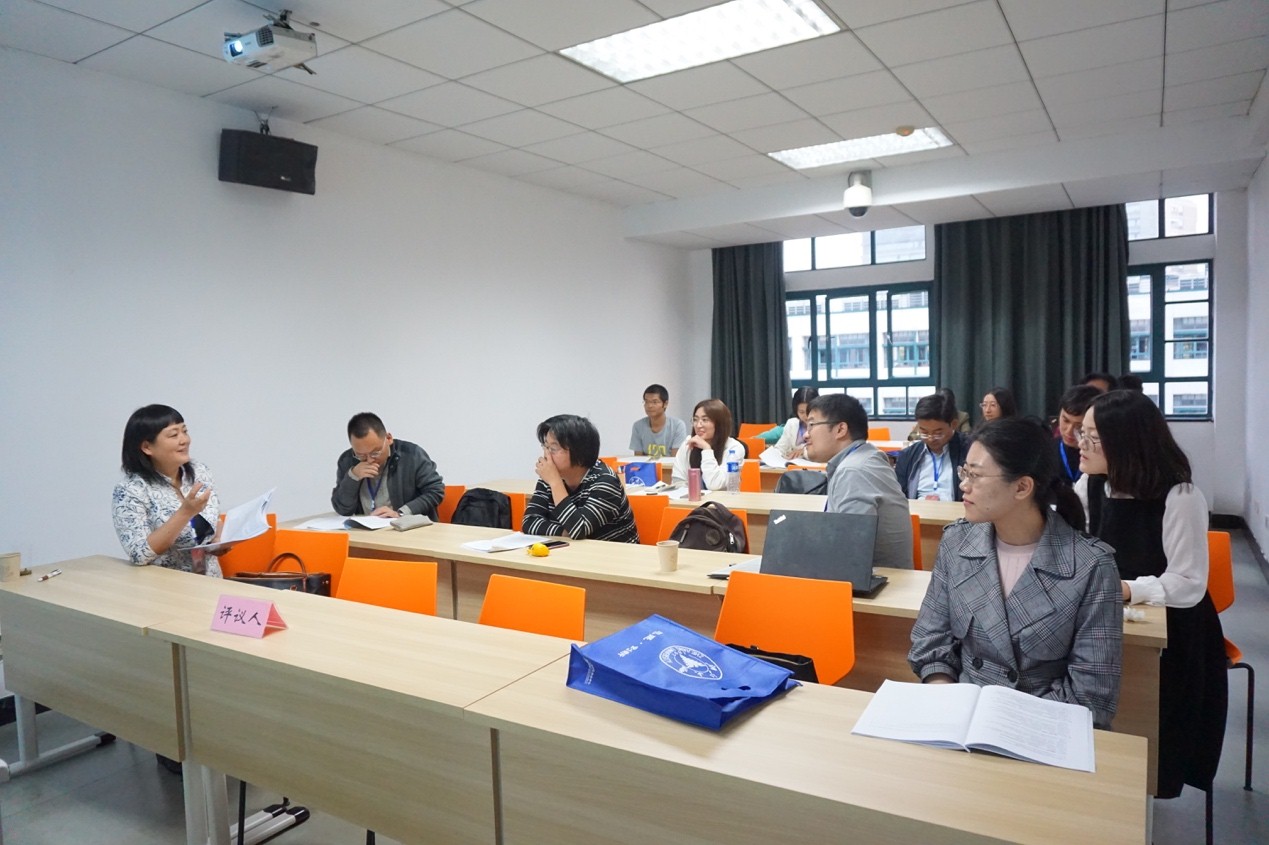
Panel Discussion
The panel presentations and discussions were wonderful as well. Participating scholars were divided into six panels with different topics, namely “Shakespeare”, “Medieval European Literature”, “Early Modern British Writers”, “Cross Borders”, “Renaissance in Italy” and “Medieval British Literature”. Many scholars, especially young ones, shared their academic research fruits. The panelists of each group were senior scholars who had made great achievements in the Middle Ages and Renaissance studies, including Prof. Lu Li’an, Prof. Kang Shilin, Prof. Yang Lingui, Prof. Cong Cong, Prof. Wang Mingyue, Prof. Wang Jun, Prof. Yuan Hexiang and Prof. Li Weimin. Having reviewed the submitted papers in advance, they listened attentively to all the presentations and gave insightful and critical comments after the discussion. They spoke highly of the rigorous academic attitude and creative research perspectives of young scholars, and provided suggestions for revisions of their papers.
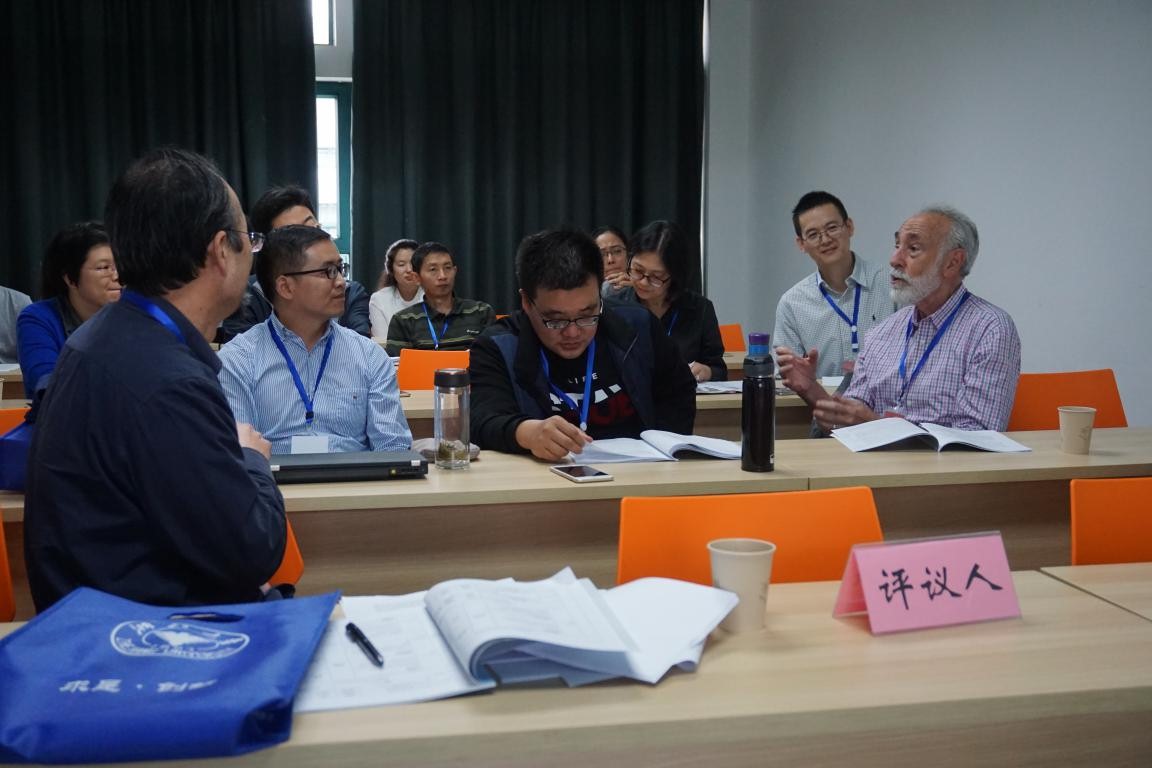
Prof. Kastan giving impromptu comments in group discussion on Shakespeare
At the closing ceremony, six hosts of each panel discussion gave a report respectively. Prof. Li Weimin from Zhejiang Yuexiu University of Foreign Languages made a concluding speech. He, first of all, expressed his gratitude to the organizer of the symposium, the CMRS of SIS, and to Prof. Hao Tianhu, Director of the CMRS for their efforts to provide a great platform for academic exchanges. Meanwhile, he proposed that the CMRS could integrate its research with studies on Tang Xianzu, thus promoting Zhejiang’s local features and achieving better development. Finally, he expressed his best wishes for the development of the center and the future of the Medieval and Renaissance literature studies in China.
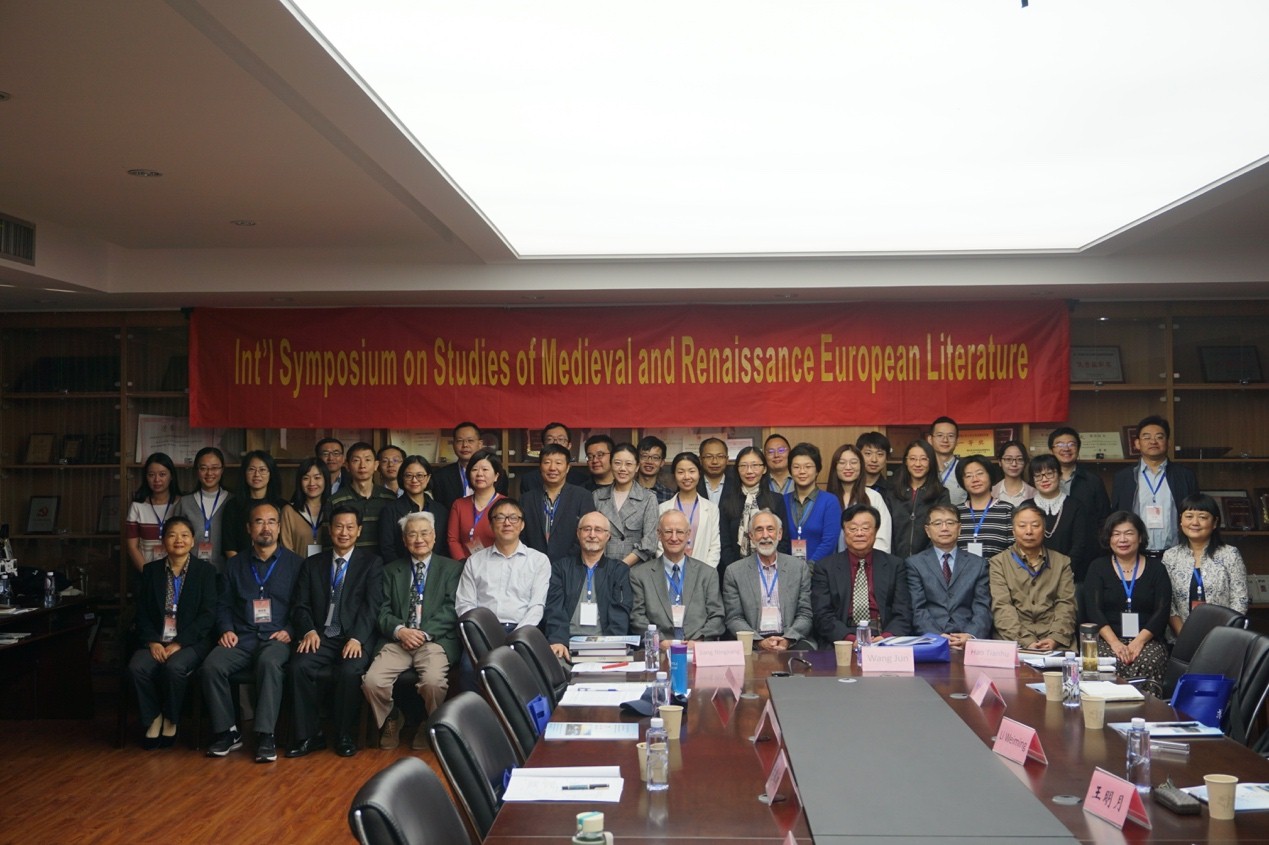
Group photo
The participating scholars fully recognized the cross-evaluation in the symposium, believing the two-way evaluation between foreign senior scholars and Chinese young scholars would contribute to the academic exchanges between countries and generations and to academic progress as well. A number of Chinese and foreign senior scholars, who were involved during the entire symposium, set a good example for young scholars. Prof. Kastan inspired the audience greatly with his impromptu speeches full of passion and academic value. Delegates expressed that this conference provided a valuable platform for exchanges among experts, scholars and literary enthusiasts from all over the world. It was a successful academic conference, a feast of ideas. It’s expected the CMRS can make more remarkable contributions to the research on medieval literature and Renaissance in China.
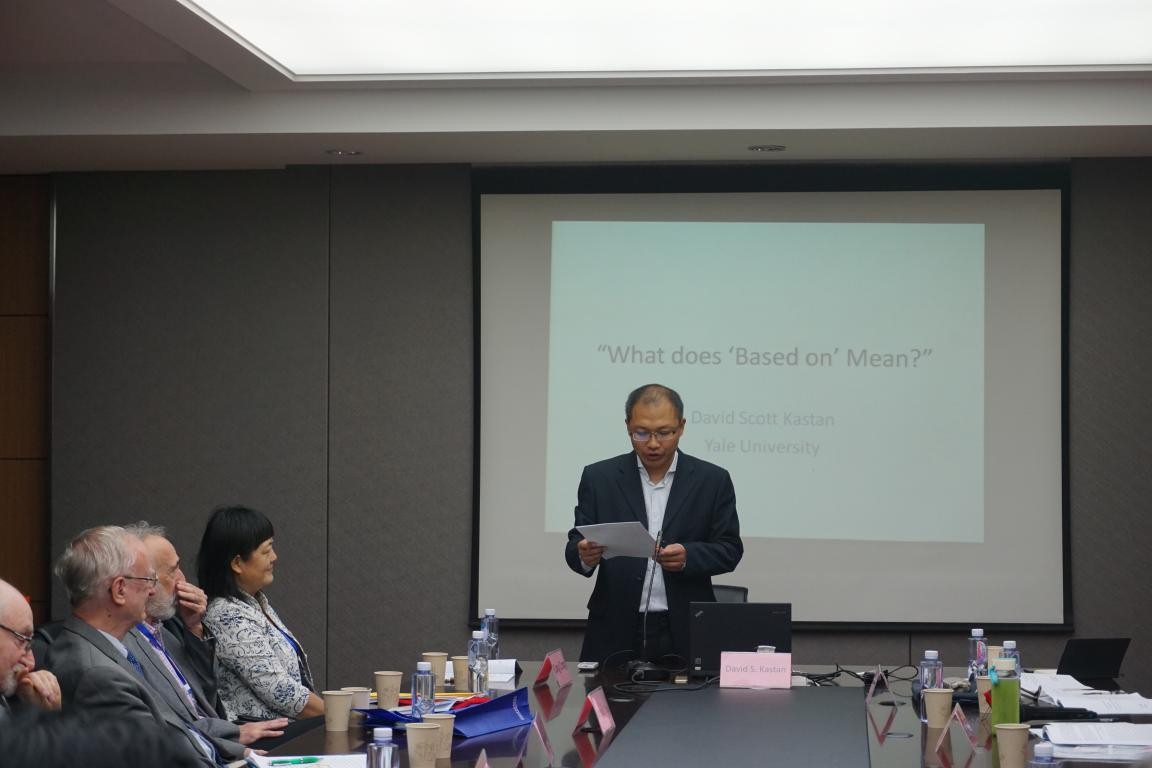
Prof. Hao Tianhu commenting on the keynote speech given by Prof. Kastan
Center for Medieval and Renaissance Studies of School (CMRS) of School of International Studies,
Zhejiang University
October 21, 2018
Written by Lin Tianying
Photoed by Lin Weijian & Lin Tianying
Translated by Li Qian
Edited by Xu Xueying



